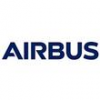
Master student to derive a Robust performance model for the paired flying satellites of the Next Generation Gravity Mission (d/f/m)
Job Description :
In order to support the Attitude and Orbit Control System (AOCS), Guidance, Navigation and Control (GNC) & Flight Dynamics department, Airbus Defence and Space is looking for a
Master student to derive a Robust performance model for the paired flying satellites of the Next Generation Gravity Mission (d / f / m)
Are you looking for a Master Thesis? Would you like to work on the Next Generation Gravity Mission (NGGM) and its satellites flying in formation, with focus on robust modeling?
Then apply now! We look forward to you joining us!
Location : Friedrichshafen / Immenstaad
Start : summer 2024
Duration : 6 months
Spacecraft in Low Earth Orbit (LEO) offer numerous benefits due to their proximity to the Earth’s surface and play a crucial role in Earth observation, weather forecasting or scientific research.
The Next Generation Gravity Mission will specifically improve our knowledge about the Earth’s gravity field with enhanced gravity gradient measurements.
It consists of two identical satellites flying in formation ( 200 km apart) and measuring their range variations (precision to a nanometer level) over the orbit, as well as the non-gravitational accelerations acting on them.
In addition to the usual AOCS, the control system therefore includes the drag compensation and the formation flight in order to allow the two spacecraft to acquire and maintain the link between them.
If treated as a single entity, the dynamic interaction between the two paired spacecraft together with the whole range of internal noises and environmental disturbances (atmospheric drag, gravity and magnetic fields, etc.
acting on them scales up the dimension of the whole control system, which represents a new challenge for modeling, analysis and attitude control design.
Modern robust control techniques have the capability to specifically address these challenges. This thesis focuses on identifying system performance drivers in order to support the system performance analysis by complementing the traditional high-fidelity Monte-Carlo simulation campaigns.
This will be achieved by deriving a robust model of the whole system, i.e. an adequate linear analytical model of both spacecraft in their environment including parametric uncertainties.
Such a deterministic model is obtained from the linearization of the non-linear dynamics equations, combined with a very good physical understanding and the quantification of the uncertainties in the system.
The complexity of the resulting model shall be high enough to enable the assessment of stability and performance, but low-enough to avoid numerical difficulties.
This well-balanced model will serve as a preparation for the worst-case analysis.
You will learn about : NGGM mission, S / C systems engineering, formation flying dynamics, probabilistic modeling of uncertainties, being part of a project team in a challenging space mission.
Your location
At the Airbus site in Friedrichshafen you will be working on innovation where others spend their holidays. Enjoy panoramic views of Lake Constance while having lunch in our canteen.
And after work, join one of our many corporate sports groups to go running, sailing or skiing.
Your benefits
Attractive salary and work-life balance with a 35-hour week (flexitime).
International environment with the opportunity to network globally.
Work with modern / diversified technologies.
At Airbus, we see you as a valuable team member and you are not hired to brew coffee, instead you are in close contact with the interfaces and are part of our weekly team meetings.
Opportunity to participate in the Generation Airbus Community to expand your own network.
Your tasks and responsibilities
Understanding of the dynamical behavior of the paired spacecraft of the NGGM mission as formation flying spacecraft using a system of nonlinear / linear equations of motion.
Familiarization with the description / formulation of Linear Fractional Transformation (LFT) models and probabilistic uncertainties.
Derivation and implementation of a LFT model for NGGM.
Application of derived LFT model for robustness and sensitivity analysis of NGGM in science operation.
Documentation of work.
Desired skills and qualifications
Enrolled as a full time Aerospace Engineering Master student (d / f / m) or similar field of study.
Skills (Technical or Software)
Very good knowledge of MATLAB / Simulink
Very good knowledge of dynamics and robust control
Desired knowledge in rendezvous applications
Languages
English is mandatory
German would be an asset
Please upload the following documents : cover letter, CV, relevant transcripts, enrollment certificate.
Not a 100% match? No worries! Airbus supports your personal growth.
Take your career to a new level and apply now!
This job requires an awareness of any potential compliance risks and a commitment to act with integrity, as the foundation for the Company’s success, reputation and sustainable growth.
Company :
Airbus Defence and Space GmbH
Employment Type : Internship
Internship
Experience Level : Student
Student
Job Family :
Vehicle Mission & Control







